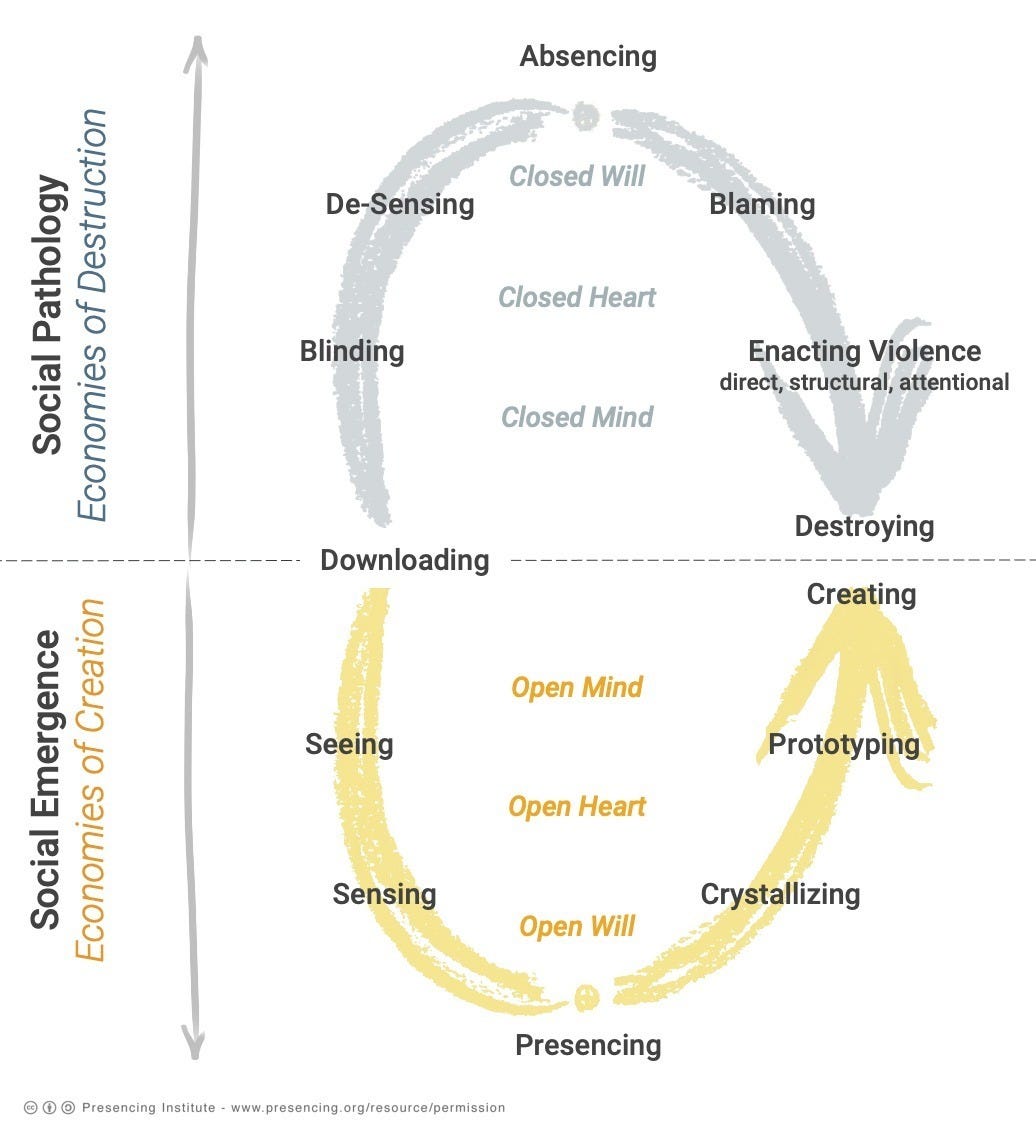This week’s 12 links:
- How People Learn to Become Resilient, by Maria Konnikova in The New Yorker… which is behind a paywall so I don’t know what I was hoping to get out of it. I often quote that “resilience is a property of systems, not individuals” (though I can’t remember who said it and looking it up doesn’t give me the answer!). This link reminds me that I was reading another article today (Put down the self-help books, resilience is not a DIY endeavour – by Michael Ungar) which highlights how much “resilience depends more on what we receive than what we have within us.”
“We had proved that resourced individuals do far better than individuals without resources, no matter how rugged the latter might be.”
“In all aspects of life, social justice is important to resilience, too.”
“The social, political and natural environments in which we live are far more important to our health, fitness, finances and time management than our individual thoughts, feelings or behaviours.”
Tags: systems change, anti-capitalism, public services, community - So apparently the 40-hour work week isn’t just soul-eating, it’s literally bad for business, by Sareema Husain – a short article reviewing stats about productivity and mentioning a 32-hour week. I had a phase of looking into 4-day working week practices for the Co-production Network for Wales, so this was probably part of that.
- Welcoming surprise good news, one of the blog posts by Havi Brooks on The Fluent Self website and blog (March 2016). I have been following her writing on and off for many, many years, and I always enjoy encountering it for its reflective and compassionate qualities. This one makes me *particularly* smile.
“if I pause and remember truth
okay actually I’ve had many experiences in my life
of just outrageous levels of surprise good news
(and not only of the flavor that turns out to be good in hindsight)”
Also this is important:
“finding the good *while* mourning the hard and giving it permission to exist
is such a vital life skill
not ignoring the hard and pretending everything is fine
not cursing out the hard and refusing to see any treasure
it is the *process* of allowing the hard to be hard
and allowing yourself to not like it
while knowing that you don’t *have to* like it
that is what reveals the useful in the hard
you are totally allowed to keep on not liking it,
and the useful is still there, like it or not”
I also remembered, reading this, that Havi’s blog posts are always very, very long, and that’s why I only dip in occasionally, but on the other hand it’s a renewed joy on every occasion. - One Earth, Two Social Fields, by Otto Scharmer (August 2016) – in which he connects the social fields of “Absencing” and “Presencing” with the economic, political and spiritual challenges of our times. He addresses relationships because he’s talking about complexity and systems change. At the end he offers a systems change course in the U-Lab framework, not this one but similar to this one (which starts this September, um, next month in fact, and is free on MITx).
“By social field I mean the structure of relationships among individuals, groups, organizations and systems that gives rise to collective behaviors and outcomes.”
Tags: systems change, anti-capitalism, relationships - The code of conduct and etiquette for AlterConf (“a travelling conference series that provided safe opportunities for marginalized people and those who support them in the tech and gaming industries”) which I saved for future reference because it was very neat, especially the etiquette part, with explicit information about creating inclusive and accessible sessions.
Tags: accessibility - Design in the public sector: An interactive map on the NESTA website. A map of organisations working in the field of design and the public sector. Can’t quite remember why I saved this, but people doing good things is always nice.
- The 16 Personalities website. If you’ve not come across it before, it basically translates the Myers-Briggs categories (like “INFJ”) into more evocative descriptions (like “advocate”). Again, no idea why this went onto the pile! 😀
- The Benefits of Saying Nice Things About Your Colleagues, by Jane E. Dutton and Julia Lee – behind the Harvard Business Review paywall, so the mystery remains…
- A Case for Diversity in Our Workspaces, by Sallyann Freudenberg (July 2015) – which examines a range of needs and adaptations for a diverse (and specifically neurodiverse) workforce in the IT industry. I don’t know why I saved this, as it wasn’t till 2022 that I *started* to suspect that I might have autism and ADHD. (OR WAS IT…?)
Tags: accessibility - Mindlab 2.0: Denmark establishes its next-generation innovation lab, on apolitical – an account of the closure of MindLab, and the creation of a new digital innovation team in the Danish government. I was very interested in policy labs for a long time (I am still interested now but less intensely!) and that’s why the Co-production Lab Wales is called that.
Tags: public services - Basic design for extraordinary conversations, by Chris Corrigan – a facilitator based in Canada whose work and writing I quite like. And also…
- Divergent and convergent thinking, also by Chris Corrigan – two articles presenting key concepts of facilitation.
Tags: facilitation
My time to read:1 hour 30 minutes

Image credit: u-school via Eva Pomeroy
